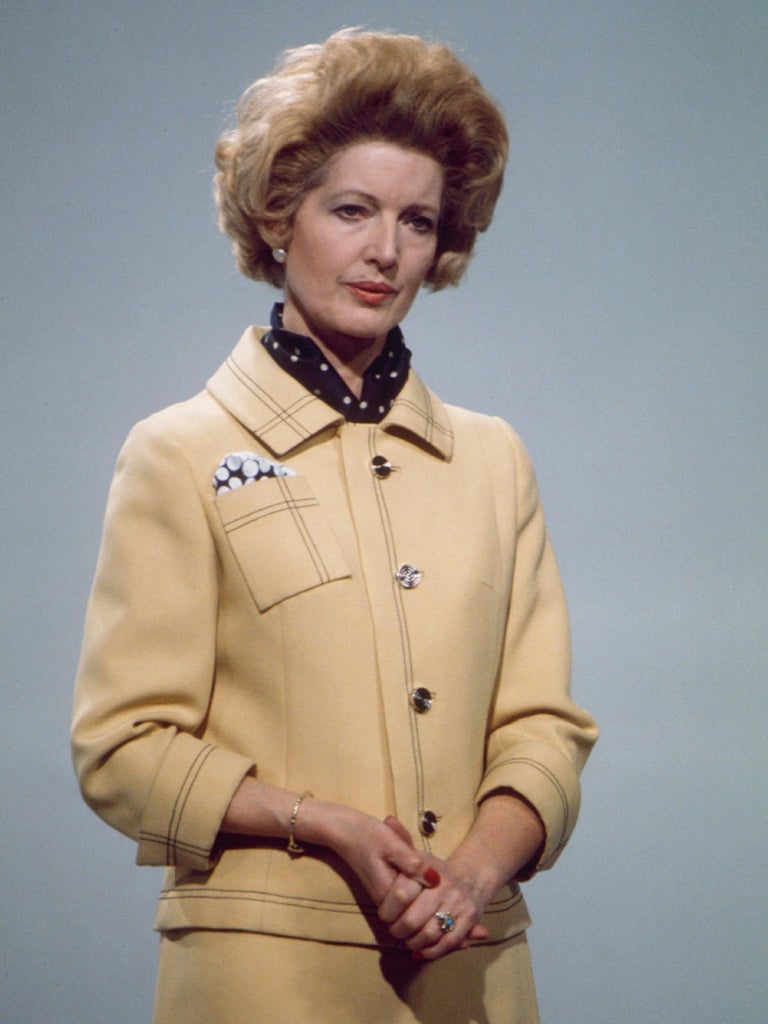Are our politicians too dull to mimic? bother impersonating?
Celebrities rather than party leaders are the staple target of today's comedy impressionists, says Gerard Gilbert

Your support helps us to tell the story
From reproductive rights to climate change to Big Tech, The Independent is on the ground when the story is developing. Whether it's investigating the financials of Elon Musk's pro-Trump PAC or producing our latest documentary, 'The A Word', which shines a light on the American women fighting for reproductive rights, we know how important it is to parse out the facts from the messaging.
At such a critical moment in US history, we need reporters on the ground. Your donation allows us to keep sending journalists to speak to both sides of the story.
The Independent is trusted by Americans across the entire political spectrum. And unlike many other quality news outlets, we choose not to lock Americans out of our reporting and analysis with paywalls. We believe quality journalism should be available to everyone, paid for by those who can afford it.
Your support makes all the difference.The recent Hansard Society survey suggesting that the public is more disengaged from national politics than ever won't come as a surprise in comedy mimicry circles. The market for David Cameron and George Osborne impressions is flatter than the eurozone economy, while anyone attempting to imitate Ed Miliband is likely to struggle now that the Labour leader is breathing more easily after his nose operation.
In fact the new Channel 4 impressions show Very Important People eschews politicians altogether. Morgana Robinson and Terry Mynott concentrate on people famous for being on television, in particular the types of reality series to be found on ITV2 or Sky Living. Natalie Cassidy Is Doing This Now is a pitch-perfect look at the solipsistic banalities of shows like Peter Andre: The Next Chapter, while Britain's Hardest Commute with Danny Dyer has a firm handle on the tropes of youth television.
But then Very Important People is Friday-night "lager television" and its makers are aware that MPs are as sexy as a backbencher's beer belly to its target audience. That's not to say that the writers don't have opinions – a sketch where Frankie Boyle is the subject of a David Attenborough wildlife film takes a well-aimed boot to the Glaswegian shock-meister – but they don't stray far beyond the amusements to be found in Heat magazine.
More mainstream series like BBC1's The Impressions Show with Culshaw and Stephenson and Alistair McGowan's Big Impression have attempted to mimic David Cameron without success. McGowan has said that the problem is phonetic ("I think because he has a very airy voice"), although Rory Bremner is probably on to something when he says that "there are fewer characters around so there is less to work with". Bremner was one of the many contributors to ITV's Spitting Image – the high-point of political impressionism that began its modern existence with Peter Cook's Beyond the Fringe satire of Conservative Prime Minister Harold Macmillan.
With his patrician demeanour, Macmillan was a bigger sitting target in the early Sixties than the grouse he liked to blow away off the moors, and the taboo had been broken. The fortunes of comedian Mike Yarwood rose in tandem with those of his most successful "character", Labour prime minister Harold Wilson, and continued with Edward Heath – whose shoulder-rocking laugh provided Yarwood with his hook – and beyond into Labour's Seventies twilight years, when the comedian alighted on Denis Healey's eyebrows. Margaret Thatcher provided Janet Brown with a decade of gainful employment, and even John Major (coloured grey in Spitting Image) and Tony Blair found themselves captured – the latter perhaps most successfully, not by a professional mimic, but by actor Michael Sheen.
The trouble with today's leaders seems to stem from their experience being confined to a narrow range of political activity – usually as a special adviser. They are as bland as boiled eggs – more middle manager than the political bruiser of yore. They are also slightly younger than established impressionists, and, as McGowan pointed out, it is easier to mimic someone older. Twentysomething Terry Mynott, for example, does a cracking Gordon Ramsay, although I shouldn't imagine that he ever practised Gordon Brown in the mirror.
There is one politician, however, with plenty of memorable character traits – indeed one who seems to positively invite mimicry, not least for its brand value – and that is Boris Johnson. From his mop of hair to his speech patterns, Johnson has been captured by Culshaw in a way that he didn't manage with Cameron. If that is any indication of the outcome of the coming battle between the two big beasts of Conservative politics, I know which one my money is on. The impressionable one.
Join our commenting forum
Join thought-provoking conversations, follow other Independent readers and see their replies
Comments